A Consumer Guide to the Trailing Edge: November, 2012
Recycled Goods (#102)
by Tom Hull
This is the third month of my campaign to hack my way through the unrated file -- specifically, the subset of older releases that I have been sitting on since I gobbled up several hundreds of CDs in closeout sales nearly a decade ago. (The file also contains about 200 new jazz records which most likely I'll get to in Jazz Prospecting about as soon as the next 200 come in.) Like most tasks, this was more exciting early on, with the column swelling to 88 records in September. It dropped to 53 last month, and to 42 this, with the number of A-list items sinking even more precipitously -- mostly because I grabbed the most promising items first. I still have enough material left to keep doing this at current levels for another three or four months -- although last time I looked at the unrated list I noticed that a lot of the records there aren't on the unrated shelf, so finding them is likely to be more of a chore. Some are also old LPs, and some of them are gone. So we'll see how that plays out.
Meanwhile, I haven't been doing much to cover the recent reissues turf. I still get occasional jazz reissues (including two boxes this time). And occasionally, I get inspired to track something else down, like this month's Dicks reissue. Will probably do more of that once the unrateds thin out, but probably not much more.
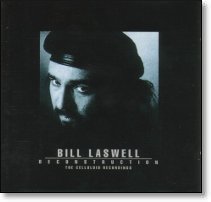 |
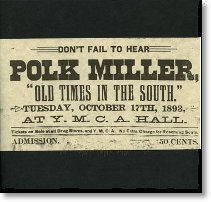 |
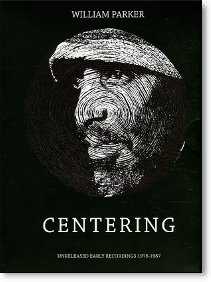 |
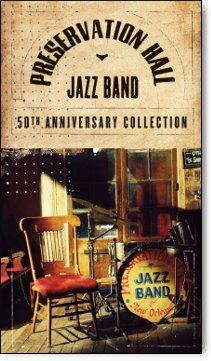 |
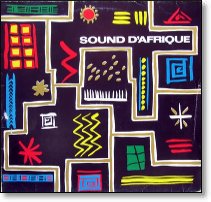 |
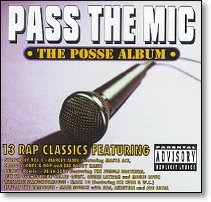 |
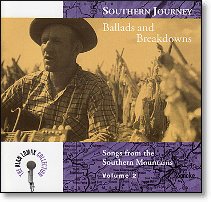 |
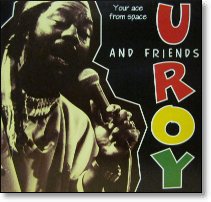 |
The Birth of the Third Stream (1956-57 [1996], Columbia/Legacy): One thing I recall from the 1950s (or early 1960s) was being taught that classical music was the real, serious, artful stuff, and all other musics were somehow inferior. By then jazz was all those things, and becoming unpopular to boot, so various folks started thinking about how to hoist jazz into the pantheon. Duke Ellington, for instance, started writing suites, and even arranging some classical pieces for jazz orchestra. Stan Kenton affected a kind of modernism inspired by Stravinsky (even if critics were more likely to compare it to Wagner). John Lewis (Modern Jazz Quartet) invented a form of chamber jazz. In those times, Gunther Schuller, a certified classical music scholar, thought about coming up with a classical-jazz fusion he called Third Stream, and he organized the Jazz and Classical Music Society to record some. This collects two LPs: Music for Brass and Modern Jazz Concert, with pieces by John Lewis, J.J. Johnson, George Russell, Charles Mingus, Jimmy Giuffre, and Schuller himself, played by large brass bands -- no strings, not sure if the roster includes classicists (the bassoon and French horns are most suspect) but I recognize a who's who of jazz royalty, including Miles Davis, Bill Evans, Art Farmer, Hal McCusick, Jimmy Knepper, Milt Hinton, and Osie Johnson. Strikes me as a bit heavy-handed, ponderous even, especially on Schuller's pieces. On the other hand, Mingus steals the show by sounding like Mingus, there are occasional bits of wonder (like the Davis solos), and a lot of history in the booklet. B+(***)
Excello Vocal Groups (1955-60 [1995], AVI/Excello): Nashville label, a subsidiary of gospel-oriented Nashboro, active 1953-74, best known for their "swamp blues" sound -- Slim Harpo, Lightnin' Slim, Lazy Lester, Lonesome Sundown, Roscoe Shelton -- dabbled a bit in doo-wop, with the Gladiolas' "Little Darlin'" and the Marigolds' "Rolling Stone" indelible songs if not quite hits. Those two are the only songs here (out of 31) that appear on either AVI's 1994 The Best of Excello Records or on either of two 1990 volumes on Rhino (Sound of the Swamp and Southern Rock 'n' Roll) -- compilations I recommend heartily. Slimmer pickings here, partly because the roster didn't get much deeper, and partly because they dug up ten previously unreleased songs (especially by the King Krooners) and a few outtakes. So file this under obscurities, but enjoy nonetheless. B+(***)
Bill Laswell: Deconstruction: The Celluloid Recordings (1979-87 [1993], Restless, 2CD): Bassist, likes a good beat, but also enjoys playing with free sax terrorist Peter Brötzmann, who tangles both sides up in knots before the groove resumes. Only 4 (of 25) cuts are directly credited to Laswell, plus six to Material (his main ride), others to Deadline, Massacre, Time Zone, Last Exit, and then there were African artists Laswell produced and otherwise toyed with, including Fela Kuti, Manu Dibango, and Touré Kunda, and proto-rappers the Last Poets. He was, in short, in the middle of a hive of activity bouncing off anything new that felt good, and he had his own record company to release it. He's worked at the same furious pace ever since, but these were his good old days. A-
Polk Miller & the Old South Quartette: Music of the Old South (1909-28 [2008], Flaherty): Born in Virginia in 1844 on a plantation with over 200 slaves, a firsthand experience that in the 1890s Miller attempted to retrieve in his traveling show, "The Old Virginia Plantation Negro." In 1909 he cut seven Edison cylinder records with The Old South Quartette, and in 1928, after his 1913 death, the Quartette regrouped to make seven 78s, giving us the 14 songs here. I don't know how to spin the racial politics: the 1890s saw the triumph of the Jim Crow laws, and by the 1920s segregation was solidly ensconced, not least in the federal government. Miller was white, the Quartette was black, and evidently neither went in for blackface or farce. Miller's cuts grab you harder -- his "Old Time Religion" sounds so ancient you could imagine Abraham doing it. This version comes in an illustrated, oversized 24-page booklet -- not heavy enough for your coffee table, but unlikely to fit anywhere else -- with extra "digital" versions repeating the first set, crisper and stronger than ever. (Overpriced at $28. Tompkins Square, in 2008, released a cheaper edition with just the 14 originals, titled Polk Miller & His Old South Quartette. And way back in 1991, Document included all 14 tracks as well as 9 by other groups in The Earliest Negro Vocal Quartets 1894-1928 -- haven't heard them, but that label never let a worn master slow them down.) A-
William Parker: Centering: Unreleased Early Recordings 1976-1987 (1976-87 [2012], No Business, 6CD): The great bassist of my generation -- he turned sixty back in January -- Parker spent most of the 1980s piling up side credits, which ran close to 300 last time I counted, probably more like 400 now. His own discography only picks up around 1993, with 1995's Compassion Seizes Bed-Stuy a breakthrough, and 1998's The Peach Orchard a triumph. But we now know that he experimented widely from 1974 on -- the 2003 release of Through Acceptance of the Mystery Peace picked up bits from 1974-79 -- and he released limited runs on his own Centering label. The Lithuanian label NoBusiness collected his 1980-83 recordings with Jason Kao Hwang as Commitment in 2010 (cf. The Complete Recordings 1981/1983), and now they've gone much further with this lavish, lovely box set. The first three discs feature intimate groups with saxophonists Daniel Carter, David S. Ware, and Charles Gayle -- the latter some of the finest free sax blowing I've heard -- followed by a short (13:51) song set with vocalists Ellen Christi and Lisa Sokolov. The last three discs move into larger groups, ranging from the atmospheric dance accompaniment to the Big Moon Ensemble, one of the most explosive free big bands I've heard. A-
Preservation Hall Jazz Band: 50th Anniversary Collection (1962-2010 [2012], Columbia/Legacy, 4CD): By all accounts, jazz originated in New Orleans, but from the 1920s on jazz musicians couldn't wait to get out of the Crescent City. Meanwhile, the native jazz of New Orleans became trad jazz, eclipsed by swing and bop and cool and avant and all manner of postmodernism, so archaic it could be welcomed back as tourist music -- all of this within the lifespan of musicians like De De Pierce, George Lewis, and Cie Frazier, who were welcomed back as folk heroes. In the 1960s Allan Jaffe opened Preservation Hall and organized its Jazz Band, an institution that has continued for fifty years, though dozens of personnel changes all dedicated to maintaining the old sound. They've mostly achieved that aim, but with fifty years to choose from, the compilers have opportunities to mix it up, like guest vocals by Tom Waits, Richie Havens, and Del McCoury. Still, I prefer the old stuff, especially guys like George Lewis, whose take on the music had less to do with respecting history than with staying alive. B+(***)
Sound D'Afrique (1979-81 [1981], Mango): Touted as the "first compilation of African dance music to be issued in North America by a major label" -- a qualification that overlooks John Storm Roberts' Original Records compilations, starting in 1972 with the still remarkable Africa Dances -- this runs six cuts, 44:07, drawing on former French and Belgian colonies (Senegal, Ivory Coast, Upper Volta, Cameroun, Congo, and Zaire). No liner notes, only two artists I've run into again (Youssou N'Dour d/b/a Etoile de Dakar, and Pablo Lubadika), only two songs I can date, but the suspicion is this came together quick using recent tracks -- makes it dubious as a genre sampler, but hard to fault the music (although N'Dour takes a bit longer to sink in). A-
Heiner Stadler: Brains on Fire (1966-74 [2012], P&C Labor, 2CD): German pianist, moved to New York in 1965, hooking into the avant jazz scene, winding up with the original release of this album in 1973 (three cuts), followed by a second volume (three more cuts) in 1974. This drops one track from the second volume ("Pointed") and adds three previously unreleased pieces, one a blowout with the Big Band of the North German Radio Station (including Manfred Schoof, Gerd Dudek, Albert Mangelsdorff, and Wolfgang Dauner). The rest are small groups, mostly with Jimmy Owens on trumpet and Tyrone Washington or Joe Farrell on tenor sax; the exception is a bass-vocal duet, Reggie Workman in fine form, but Dee Dee Bridgewater is barely audible. B+(**)
Briefly Noted
Tony Allen: Home Cooking (2002, Narada): Nigerian drummer, played a prominent role in Fela Anikulapo Kuti's Afrobeat orchestra, lived to carry on the flame; most successful when the groove stays close to the model, although his gravel voice is more suited to rap. B+(**)
Joan Armatrading: Track Record (1976-83 [1983], A&M): Black British singer-songwriter, born in St. Kitts, doesn't carry any particular stylistic roots and rarely bothers to hook her songs; "Rosie" is the exception, appearing here -- (the first of several more or less redundant best-ofs -- after twelve songs you have to chew on. B+(**)
Joe Arroyo: Super Fiesta Con Joe Arroyo (1990-99 [2001], Disco Fuentes): Colombian cumbia star, one of the few to have established a large discography, not that it's easy to sort out exactly where these loud and brassy hits came from, a place to start exploring beyond the compilations (which remain the place to start with cumbia, although I can attest to Arroyo's La Noche, on Riverboat). B+(**)
The Corruptor: The Soundtrack (1999, Jive): In the movie, Chow Yun-Fat and Mark Wahlberg play cops, but the soundtrack is all gangsta, tough and vivid and remorseless. B+(**)
Cheryl Crow: Tuesday Night Music Club (1993, A&M): Debut album, several striking songs, all co-credited to producer Bill Bottrell (and often others). B+(***)
Dicks: Kill From the Heart/Hate the Police (1980-83 [2012], Alternative Tentacles): Austin hardcore group from the decade when all the Richards I knew wanted to be called Rich, moved to San Francisco when singer Gary Floyd came out, rails against the Klan and other domestic Nazis when not aping them, tacking their 1980 debut single onto their 1983 album; true to form, most songs dip under two minutes, the 11:28 "Dicks Can't Swim: Cock Jam/Razor Blade Dance" truly exceptional. B+(***) [R]
Dominic Duval/Jason Kao Hwang: The Experiment (1999 [2000], Blue Jackel): Avant string duo, bass and violin respectively; the violinist starting to come into his own as a major avant figure, the bassist studiously assisting. B+(**)
Herb Geller: Playing Jazz: The Musical Autobiography of Herb Geller (1995 [1997], Fresh Sound): An alto saxophonist of the West coast cool school, one of the greats, really, sets his autobiography to music, his first sax at age nine, early inspiration from Benny Carter and Charlie Parker, working with comics like Lenny Bruce, his short-lived wife, asides on Chet Baker and Joe Albany and Al Cohn; the story is fascinating, the music spot on, the skits and libretto sometimes awkwardly wedged in, worth hearing, but may be too wordy to repeat much. B+(***)
Stan Getz, Coleman Hawkins & More: Battle of the Saxes (1944-46 [1996], Tradition): A short (28:05) sampler from the "birth of bebop" years, focusing on tenor sax with two cuts each from the teenaged Getz, the master Hawkins, Charlie Ventura (the most boppish), and Ben Webster (the hardest swinger), plus one each from Ted Nash (uncle of the better known alto player) and Don Byas (a lovely ballad), all but Hawk in quartets -- he adds yet another tenor sax great, Budd Johnson, and Emmett Berry on trumpet. B+(***)
Shirley Horn: You Won't Forget Me (1990, Verve): A striking jazz singer, especially on the slow standards that predominate here, she started in the 1960s, but got a restart when she signed to Verve in 1987; her trio -- she plays piano, expertly enough to show up on other singers' albums -- gets the occasional guest star addition here, including Miles Davis and Wynton Marsalis. B+(**)
Italian Instabile Orchestra: Skies of Europe (1994 [1995], ECM): Eighteen-piece avant big band, founded in 1991, featuring some of Italy's best known musicians -- Pino Minafra, Mario Schiano, Gianluigi Trovesi, Carl Actis Dato, Giorgio Gaslini among them; two extended suites, dense, many strong passages, some meandering. B+(**)
Judgment Night: Music From the Motion Picture (1993, Immortal/Epic Soundtrax): Eleven stabs at rap-metal fusion, each matching a (mostly white) band with one or more (mostly black) rappers, a novel concept at the time (although Ice-T, paired here with Slayer, followed up); needless to say, metal wins out, sinking the rhymes to the bottom. B+(*)
Lemon Jelly: Lost Horizons (2002, XL): British electronica duo, Nick Franglen and Fred Deakin, released four albums 2000-07, this the second; some guitar, not many vocals, chills out nicely. B+(**)
Abbey Lincoln/Hank Jones: When There Is Love (1992, Verve): A jazz singer I've often had problems with -- voice too low, too slow, her early stuff (except Max Roach's We Insist! Freedom Now Suite) too scattered -- but she wowed nearly everyone else, especially once she got to Verve in 1991; just singer and pianist here, and Jones provides the ideal mix of assurance and support, making her so comfortable for once she doesn't overreach. B+(**)
Mano Negra: Patchanka (1988, EMI/Virgin): Manu Chao's old group -- other members may beg to differ, but that's how you will hear it -- in their first album, starting live to convey how hot and frenzied they can be; includes a very strange arrangement of "Rock Island Line," closer to their average than you can imagine, but average nonetheless. B+(**)
Mano Negra: King of Bongo (1990-91 [1991], EMI/Virgin): Don't have Manu Chao's French/Spanish group's second album, Puta Puta, but this extends that album's move to English lyrics, now in the majority; that may help convey their political points, but more often than not those lyrics are yoked to conventional American rock rhythms. B+(*)
Mano Negra: Amerika Perdida (1988-91 [1991], EMI/Virgin): A compilation, draws 5 tracks from Patchanka, 9 from Puta's Fever, 1 from King of Bongo, plus the new title track; main thing here is that in ditching the rock en anglais they rediscover their own uniqueness. B+(***)
Mourmourika: Songs of the Greek Underworld (1930-55 [1999], Rounder): Also known as rembetika, a forlorn pre-WWII folk music regarded as more than a bit disrespectable, recorded with the fidelity of old field recordings, the surface noise preserved as a sign of antiquity. B+(*)
Wolfgang Muthspiel Trio: Timezones (1990, Amadeo): German guitarist, often likened to Pat Metheny and/or John Scofield although he is consistently more eloquent than either; this looks to be his first album, his trio augmented by splendid saxophonist Bob Berg on three cuts, testy pianist Aydin Esen on two, and both on one -- artists that tug him back and forth. B+(*)
Randy Newman: The Best of Randy Newman (1968-99 [2001], Warner Archives/Rhino): A dozen brilliant songs here, maybe a couple more, but you could just randomly line up his songs with a dart board to much the same effect (and probably wouldn't wind up with "Short People" or "Rednecks"), or you could go with any of half a dozen primo albums, including one (Harps and Angels) that came out after the cutoff here, further underming the title. B+(***)
Pass the Mic: The Posse Album (1988-95 [1996], Priority): Label sampler billed as "13 Rap Classics," the concept is freestyle cutting sessions where two or more rappers get their shots in, rapid fire, the beats jacked up to keep everyone on their toes. A-
Ivo Perelman Duo Featuring Borah Bergman: Geometry (1996 [1997], Leo): Tenor sax-piano duets, the Brazilian leader in typically strong form working through free territory, the pianist -- who, by the way, passed away on Oct. 18 after a 35-year career -- attacking obliquely but having some trouble getting heard. B+(***)
The Persuasions: Man, Oh Man: The Power of the Persuasions (1971-72 [1997], Capitol): Accapella soul group, draw their rhythm from the deep voices which makes them a natural for gospel and folk blues, less so for covering Sam Cooke and Curtis Mayfield; from three early albums, a nice sampler for a long-running group without an obvious best-of. B+(***)
Spike Robinson: Very Live in Boulder, Colorado (1974 [2012], Hep): Early archival tape from the late tenor saxophonist (1930-2001), a mainstream player with a light "Four Brothers" tone, flitting through standards including "Scrapple From the Apple"; only familiar name in the quartet is guitarist Dale Bruning, b. 1934, who's had a similar career of looking back while inching forward, and is often notably eloquent here. B+(*) [R]
The Loren Schoenberg Quartet: S'Posin' (1990 [1991], Musicmasters): Tenor saxophonist, perhaps best known as a historian and writer, especially for his relationship with Benny Goodman; with bass, drums, and Kenny Werner on piano, a couple originals and standards including the title tune by Paul Gonsalves. B+(**)
Ricardo Silveira: Storyteller (1995 [2012], Adventure Music): Brazilian guitarist, ten albums since 1988, this reissue his latest before Mike Marshall's adventurous label picked him up in 2003; some solo cuts, most with keybs and rhythm, upbeat, guitar striking as usual. B+(**)
Southern Journey, Volume 2: Ballads and Breakdowns: Songs From the Southern Mountains (1959 [1997], Rounder): One of thirteen volumes in this series of Alan Lomax field recordings, returning to the turf of his early discoveries and finding little has changed; sharp fiddles, shrill voices, the best known Hobart Smith, at least as remarkable Texas Gladden. A-
Southern Journey, Volume 3: 61 Highway Mississippi: Delta Country Blues, Spirituals, Work Songs & Dance Music (1959 [1997], Rounder): Another one, short on the promised dance music, if you ask me, but the main find is a grump who went on to some degree of fame as Mississippi Fred McDowell. B+(***)
Spearhead: Chocolate Supa Highway (1997, Capitol): Michael Franti, before he started putting his name up front, mostly works in a murky trip-hop groove which becomes all the more effective when he drops his voice, but whenever he thinks he wants to signify "Rebel Music" he drags in the reggae vibe, sometimes for a whole song. B+(***)
Dick Sudhalter & His London Friends: After Awhile (1994, Challenge): Cornet player (trumpet here), founded the Classic Jazz Quartet, wrote biographies of Bix Beiderbecke and Hoagy Carmichael plus a book called Lost Chords complaining about how white jazz musicians (1915-45) were underappreciated; his long list of London friends are trad jazzers, rotating through here in small groups which do a fine job of spotlighting the trumpet. B+(**)
U Roy and Friends: Your Ace From Space (1969-70 [1995], Trojan): Ewart Beckford, pioneering Jamaican DJ/toaster, working with Alton Ellis, the Paragons, the Melodians, and others, produced by Duke Reid, backed by Tommy McCook's group; 30 cuts, no hits, no misses, fractal details from a remarkable period. A-
Jack Walrath and the Masters of Suspense: Hip Gnosis (1995 [1996], TCB): Trumpet player, joined the Mingus band in 1974 and continued to play in various Mingus big bands; the group includes two members of Screaming Headless Torsos -- vocalist Dean Bowman and guitarist David Fiuczynski -- working through a Latin-funk-fusion that seems much richer than four instrumentalists. B+(**)
Ben Webster: Birdland 1952 (1952 [1991], Jazz Anthology): Live shot, basically a bootleg, of the tenor sax great backed by John Lewis, Milt Jackson, Percy Heath, and Kenny Clarke, better known as the Modern Jazz Quartet; the Brute struts through "Confirmation" as well as "Cottontail," and wrings every last tear from "Danny Boy"; the vibes seem a bit odd at first, but Bags can't help but swing. B+(***)
Dottie West: The Essential Dottie West (1963-74 [1996], RCA): Country singer, grew up with an alcoholic, abusive father she eventually got packed off to jail, latched onto Patsy Cline, and enjoyed some success after Cline died; a few recognized songs (although I can't swear I associated them with her), two duets with Don Gibson, a song with the ugliest child vocal I've ever heard, and this comp ends before she went pop or "adult contemporary" or whatever you call it. B+(**)
Legend: B+ records are divided into three levels, where more * is better. [R] indicates record was reviewed using a stream from Rhapsody ([X] is some other identified stream source; otherwise assume a CD). The biggest caveat there is that the packaging and documentation hasn't been inspected or considered, and documentation is especially important for reissues. But also my exposure to streamed records is briefer and more limited, so I'm more prone to snap judgments -- although that's always a risk.
For this column and the previous 101, see the archive. Total records reviewed: 3502 (3070 + 432).
Additional Consumer News
Notes
Copyright © 2012 Tom Hull.